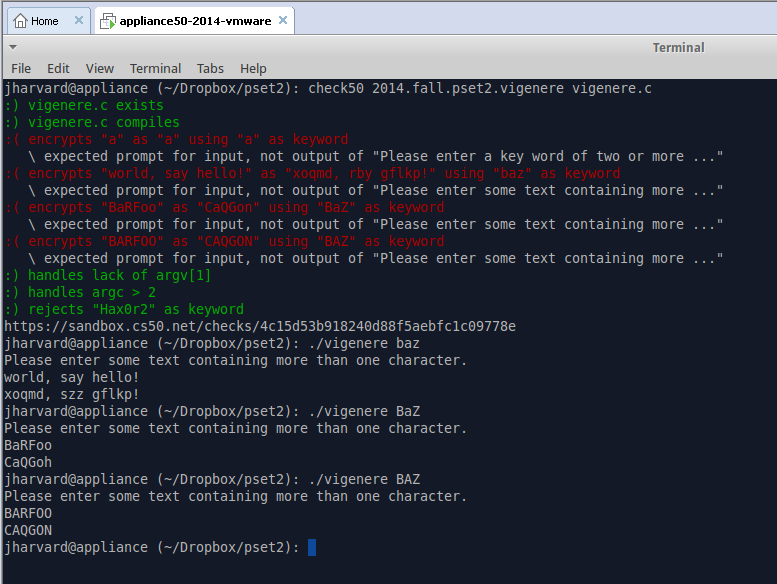My vigenere code, though anything but elegant, does encrypt per the specs. However, it still fails check50 on a number of points.
The go-to suggestion seems to be to include printf("\n") after the encryption. I've done that, but check50 still flags some things that seem to be working.
I've attached an image of the check50 results as they displayed in my terminal. Below that, in the same image, I ran ./vigenere to confirm the veracity of check50's output. While some of my output does fail, some of it seems to pass and yet still incurs red frowns. For example, when I use BAZ to encrypt BARFOO, I get CAQGON, yet check50 says that I don't.
BaRFoo encrypted with BaZ also seems to produce the intended results yet still gets flagged by check50.
Please advise if possible. Thank you for your help.
